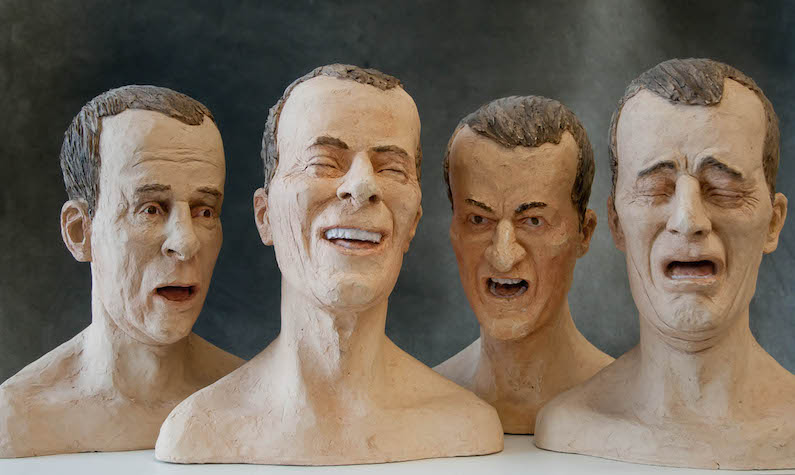I cannot begin to recall how many times those two stinging zingers of words have been hurled my way: “too sensitive.”
Or their kindred cousins: “overly sensitive.” If you are a kindred highly sensitive soul/empath, I would imagine this to be true for you too.
In this time of heightened awareness of the highly sensitive and empath nature, those among us who fit these descriptions can take quantum leaps in embracing the gifts of being highly attuned, keenly perceptive and tender-heartedly sensitive.
It took me years, decades really, to know and trust in my spongy bones that my heightened sensitivity is a gift. Oftentimes, it felt as though I was walking as a sensitive soul through a too-often, too-harsh world, with my nervous system on the outside of my body.
What was never helpful on my journey of learning to navigate the world as a highly sensitive empath were the countless times those infamous words were hurled my way: “You’re just too sensitive.” “You’re overly sensitive.” These words not only used to sting; they stuck. They were heavy, holding something which needed excavating. They felt unexamined. Unfair. Unkind.
Eureka! It hit me with a ka-thud: The Richter Scale! There is no Sensitivity Richter Scale. No standardized measure for computing sensitivity levels, percentages or degrees. No universally accepted, quantifiable fulcrum point of appropriate sensitivity. In all my years of being what some would and have called “too sensitive,” I never heard reference to such a scale. Because there isn’t one. The sticky, unexamined implication underlying the words is that some such scale exists with a specific sensitivity level deemed justifiable. Anything beyond that? “Clinically Too Sensitive.”
Some seem threatened by, or uncomfortable with, my high sensitivity. Some don’t know how to respond. At times, I sense that my sensitivity may be touching the vulnerability they’re trying to stuff or deny. Other times, I’ve known this to be true. Turning the tables: it never occurred to me to label/accuse another as being “insensitive” or “not sensitive enough.” Had I wished to be met with more sensitivity? Absolutely. With all my tender heart and sensitive soul. Have I been frustrated, sometimes angered, by not being met with more sensitivity? Yes. Often. Did it cross my mind to drop the bomb of a destructive label as if I had been granted the authority to diagnose where another lands on the sensitivity spectrum? No. Never.
These judgments are unfounded. Being called “too sensitive” is as arbitrary as if I proclaimed another to be “too insensitive.”
I believe that “too sensitive” labeling happens far more often than “not sensitive enough” labeling. It’s not uncommon to hear specific behaviors deemed “insensitive,” yet there seems to be a difference. I believe that those with higher levels of sensitivity are brandished with the label of “overly sensitive” as a character trait or flaw, whereas speaking of insensitivity is more likely to be limited in scope to specific actions. Why? I venture to guess it’s because the more sensitive among us are more apt to sense the potential harm caused by labeling someone’s character and are less likely to do it precisely because of our sensitivity. I wouldn’t tell someone that his or her nature is “too insensitive.” I see this as an unkind thing to say. I find it mean. Labeling someone “too sensitive” is just as unkind. Both are judgments, both speak to one’s nature, and both refer to qualities of self that can’t be instantaneously changed.
Some of us are highly sensitive. It is who we are. It is how we are made. It is our nature. As we strive to co-exist peacefully with the intense gift of high sensitivity, it can be destructive to hear advice like, “Just let it roll off your back.” If we could, we likely would. Some things don’t “roll off my back” because I am an empath. I absorb. I am an energetic sponge. Advising me to let things roll off my back is like expecting a thirsty sponge to not absorb the water in which it is immersed. It goes against its nature. Expecting me to change my highly sensitive nature is as effective as asking me to change my blue eye color.
Thankfully, there is much wisdom to help Highly Sensitives/empaths learn to protect our emotional bodies. (Visit these treasure chests here and here. Enjoy this piece which I wish could be required reading for all sensitive souls.)
Having the power-tool of not taking things personally in my spiritual toolbox (thanks to The Four Agreements) was pivotal in my understanding that other people’s behaviors are about them, not me. Though behaviors may be responses to my actions, others’ choices reflect others’ paradigms. I don’t have to take their paradigms personally, and I’m a whole lot happier, lighter and freer when I don’t. If I am more sensitive than another wishes for me to be, this tells me a lot about the other. This is empowering information for me to have as I navigate relationships, communications and community.
Sister and brother highly sensitive souls, shine on with your sensationally sensitive selves!
Let’s learn the tools and embrace the wisdom that helps our open hearts hurt less so we can celebrate the sweetness of sensitivity. Let’s listen to our hearts’ deep knowing that sensitivity is a most precious gift to be protected, nurtured and unleashed into the world to do good. Let’s learn to not internalize others’ arbitrary judgments and unfounded diagnoses of our sensitivity. Let’s use our voices to compassionately stand up as sensitive souls in a world that hasn’t yet learned to put down its armor and embrace the game. Let’s catalyze a shift from defending to celebrating sensitivity.
Beautifully sensitive soul, you are the change we wish to see in the world. Together, we are ushering it in. The world needs us and will be well served by our sensitivity. Namasté.
Relephant Read:
Loving & Understanding an Empath.
~
Author: Tracy Stamper
Editor: Travis May
Photo: Wikipedia







Read 0 comments and reply